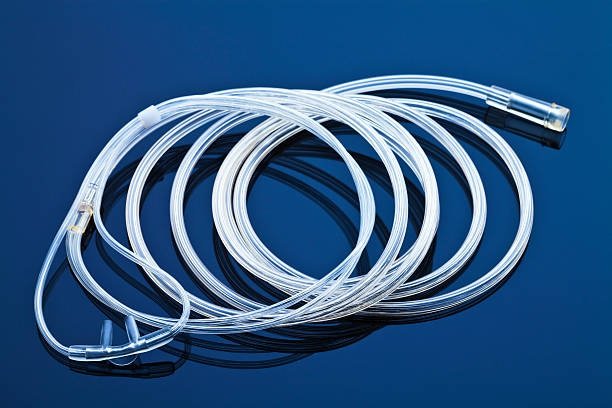In medical manufacturing, precision and reliability are paramount. A wide range of components used in medical devices must meet the highest standards of performance and Mandrel in Medical Devices – PTFE Coated are one such crucial component. These mandrels are widely used in the production of medical devices such as catheters, stents and other complex medical tubing. The PTFE coating provides several benefits that improve the manufacturing process and the final product’s quality.
In this article, we will explore the advantages of using PTFE-coated mandrels in medical manufacturing, the applications they are used for and why they are essential in producing high-quality medical devices.
What Are PTFE Coated Mandrels?
Mandrels are tools used to support the shape of a material during manufacturing processes such as extrusion, moulding or forming. In medical manufacturing, mandrels are used to help shape the inner lumen of flexible tubing or hollow devices, ensuring uniformity in size and shape.
A PTFE-coated mandrel has a layer of PTFE applied to its surface. PTFE is a high-performance plastic that is widely known for its non-stick properties, chemical resistance and low friction. When applied as a coating to mandrels, PTFE offers several important advantages that are critical in the manufacturing of medical components.
Key Benefits of PTFE-Coated Mandrels
- Improved Non-Stick Properties
One of the most significant benefits of PTFE-coated mandrels is their non-stick properties. When producing medical devices, such as catheters or stents, the material being shaped mustn’t adhere to the mandrel during the process. PTFE provides a slick surface that prevents materials from sticking to the mandrel, reducing the risk of defects or contamination. This non-stick nature is especially important when manufacturing medical tubing, as it ensures a smooth surface finish and easy removal of the product once the forming process is complete. - Enhanced Durability
PTFE coatings provide increased durability to mandrels. The material is resistant to wear and tear, which makes PTFE-coated mandrels ideal for repeated use in high-volume manufacturing environments. They can withstand the mechanical stress of shaping and moulding processes without degradation, resulting in longer-lasting tools and fewer replacements. This durability contributes to lower overall manufacturing costs and less downtime for repairs. - Chemical Resistance
PTFE is well known for its excellent chemical resistance. During medical device manufacturing, various chemicals and solvents are used in processes like cleaning, sterilization and processing. A PTFE-coated mandrel resists damage from these chemicals, making it suitable for the manufacturing of medical devices that need to be cleaned or sterilized thoroughly. This resistance extends the life of the mandrel and ensures it maintains its performance across multiple production cycles. - Reduced Friction
PTFE has an extremely low coefficient of friction, which makes it ideal for applications where sliding or movement is involved. In the case of medical manufacturing, reduced friction helps prevent damage to delicate medical components, such as thin-walled tubing or stents. It also makes the extrusion or moulding process more efficient, as less force is required to shape the material, improving the overall efficiency of the production line. - Improved Precision and Consistency
Medical devices require high levels of precision and consistency. PTFE-coated mandrels contribute to achieving these standards by ensuring that the shape and size of the medical device are uniform throughout the manufacturing process. The smooth, non-stick surface reduces the chances of errors during the forming process, resulting in consistent, high-quality products. - Thermal Stability
PTFE-coated mandrels exhibit excellent thermal stability, allowing them to function in high-temperature environments. This is particularly useful in medical manufacturing processes that involve heat, such as extrusion or sterilization. PTFE can withstand a wide range of temperatures without losing its structural integrity, ensuring that the mandrel can perform reliably under varying conditions. - Easy Maintenance
Another advantage of PTFE-coated mandrels is their ease of maintenance. The non-stick nature of PTFE makes it easier to clean the mandrel between production cycles. This reduces the time and effort required to maintain the tools, allowing for more efficient operation of the manufacturing process. Regular cleaning is essential in medical manufacturing, as contamination or residue buildup can compromise the quality and safety of medical devices.
Applications of oPTFE-Coateded Mandrels in Medical Manufacturing
.PTFE-coated mandrels are used in various stages of medical device manufacturing. Their non-stick properties and durability make them particularly suitable for processes that involve the shaping of flexible tubing or hollow components. Common applications include:
- Catheter Manufacturing
PTFE-coated mandrels are often used in the extrusion of catheters, ensuring that the inner lumen of the catheter is shaped correctly. The non-stick coating ensures that the catheter material does not adhere to the mandrel during the extrusion process, helping to maintain the uniformity and smoothness of the inner surface. - Stent Manufacturing
Stents, which are used in procedures to open blocked arteries, are another medical device that benefits from PTFE-coated mandrels. These mandrels assist in shaping the stent’s tube-like structure and help maintain precision during the manufacturing process. - Endoscopic Tubing
Tubing used in endoscopes and other minimally invasive medical devices must have precise internal and external diameters. PTFE-coated mandrels are used to shape the tubing to the required specifications without compromising its structural integrity. - Medical Injection Molding
PTFE-coated mandrels are also employed in the injection moulding of medical devices, where they are used to shape plastic components. The low friction of the PTFE coating helps the moulded parts release smoothly from the mandrel.
Why PTFE-Coated Mandrels Are Essential for High-Quality Medical Devices
The use of PTFE-coated mandrels is essential in the production of high-quality medical devices because they help ensure that components are manufactured with the necessary precision, reliability and durability. The non-stick properties and chemical resistance of PTFE make it ideal for shaping delicate materials used in medical devices. Furthermore, the reduced friction, improved durability and easy maintenance of PTFE-coated mandrels contribute to higher efficiency and lower manufacturing costs.
By choosing PTFE-coated mandrels, manufacturers can achieve the precision required to meet strict regulatory standards for medical devices. These mandrels play a vital role in ensuring that medical devices are both safe and effective, which is crucial for patient care.
Conclusion
PTFE-coated mandrels offer a range of benefits in medical manufacturing, from enhanced durability and precision to chemical resistance and ease of maintenance. Their non-stick properties are particularly valuable in shaping medical devices such as catheters, stents and endoscopic tubing. By choosing high-quality PTFE-coated mandrels, manufacturers can improve the efficiency of their production processes while ensuring that their products meet the stringent standards required for medical devices. Whether used in extrusion, moulding or other shaping processes, PTFE-coated mandrels are essential for achieving high-quality medical components that meet both safety and performance requirements.















